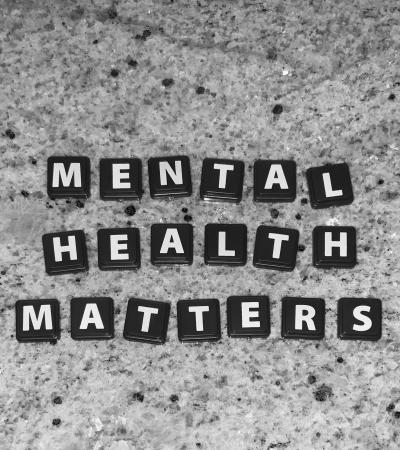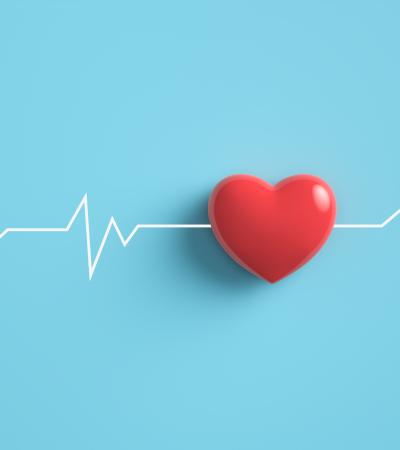Last month the Bellwood-Antis Public Library, located in a small town in central Pennsylvania, held its 12th annual Family Health and SafetyFair. Several hundred attendees turned out on a Saturday for a Run for Reading 5K, children's Zumba, a demonstration by local firefighters, health screenings and informational booths for health services like organ donation and kidney health.
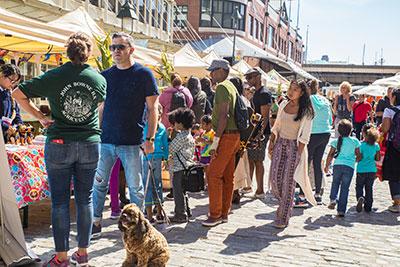
Surprisingly, the library did not spend any money on this large event. Jessica Ford Cameron, the library's director, said they “could not have done this without the Tyrone Regional Health Network and the Northern Blair County Recreation Center.”
Perhaps you have already realized the programming opportunities that await when your library joins forces with patners, such as hospitals, YMCAs and public health departments. Or perhaps you're considering the idea for the first time. In either case, I hope this blog series will help you see partnerships — and their potential to create low-cost, high-impact health programs — in a new light. Our first post will focus on health and wellness fairs.
Why partnerships?
Why partner to organize health programming at your library? Put simply, you can do more with partners than you can do alone. Without partners, the Bellwood-Antis Public Library's Family Health and Safety Fair would have cost hundreds or thousands of dollars — an amount that many public libraries can't afford.
Furthermore, partners bring invaluable expertise; most public librarians are not public health professionals or certified yoga instructors. It makes sense to reach out to others in your community to develop health and wellness programs.
More broadly, the Aspen Institute’s Re-Envisioning Public Libraries initiative has shown us that public libraries need to develop better partnerships in their communities to survive. Its recent report, Building Community Resilience in Colorado, focuses on “a set of opportunities and recommendations for building public-private and public-public library partnerships.”
This blog builds upon these recommendations by focusing specifically on how public libraries can form and sustain community partnerships to create effective health and wellness programs.
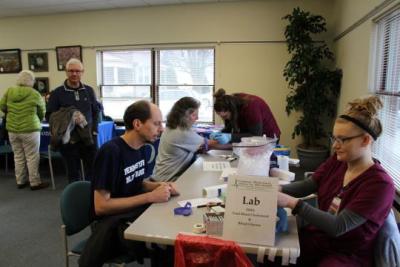
Health fairs: An easy way to start forming community partnerships around health
Health and wellness fairs are a relatively easy way to begin forming partnerships in your community around health and wellness. Rather than commit to working with a particular partner for a sustained period of time, you instead invite and then work with a broad array of health-related organizations to come to your library to share information, conduct screenings and lead classes.
More and more libraries are also developing health fairs. Just a few weeks ago, the director of the Bolivar-Hardeman County Library in Tennessee asked other members of the Association for Rural and Small Libraries (ARSL) for advice: “I have had this idea to do a health fair type thing for a while, but here's the thing. I have never done anything like that. I don't even know if other libraries have done anything like that?”
Over the next few days, nearly a dozen public librarians from across the country posted to the ARSL e-mail list with their experiences holding health fairs at their libraries. According to one library director, “any health-related organizations generally love to participate” in health fairs. Another librarian said simply, “the key is to manage the health fair: don't do it all yourself.”
Below is a partial list of the organizations that small and rural libraries reported collaborating with:
- Hospitals (start with their outreach or marketing staff)
- Health insurance companies
- Grocery stores and nutritionists
- Parks and recreation departments
- Master gardeners
- Community centers, YMCAs or gyms
- Health-health community groups
- Breast cancer coalitions
- Chiropractors
- Massage therapists
- County health department
- Nearby nursing college or medical school
- Bike, running, and sports stores
- Outdoor equipment stores
- The regional office of the National Network of Libraries of Medicine (NNLM)
- High school students (work with the student council to get them to do some of the outreach and legwork)
If you like, you can focus your health fair around a theme. In Denton, Texas, the public library won an award from the Urban Libraries Council for its bike parade, an annual program focused on increasing physical activity and bike safety. In Durham, Conn., the library held a Holistic Health Fair that featured workshops and informational booths on wellness practices like meditation and mind-body practices like T’ai Chi and acupuncture. Tailor your event to local needs and interests.
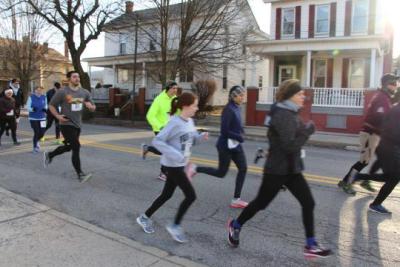
The nuts and bolts: From idea to reality
- How do I get started? Forming partnerships starts with relationships. Do you or your staff already have informal or formal relationships with some of the potential partners suggested above? Start there! For example, do you go to a gym? Do you go to a doctor for an annual physical? Ask them if they want to participate.
- How do I market it? Pitch a broad tent and you will be surprised at how many partners you will find wanting to participate — and most will be happy to invite their own clientele or supporters. Once you have the event details in place, get a press release out to the local media. The media tend to give these good coverage to health fairs, as coverage of recent health fairs at public libraries in Elgin, Ill.; Bellwood Penn.; Laureldale, Penn.; Pueblo Colo.; and Lewes, Del., can attest.
- How do I run it? If your health fair has been well advertised, expect lots of people coming to the library, including many first-time patrons. Make sure you have ample staffing; think about asking your Friends of the Library to have a table at the fair so they can help with crowd control and sign up new card-holders. Also, if you have any physical activity demonstrations, you may want to have participants sign waivers of liability in case of physical injury. It probably won’t happen, but better safe than sorry!
The best location for a health fair is in your library’s meeting room (space permitting), but depending on the season you may want to have part of the fair outside on your library’s lawn. In any case, be prepared for many attendees to also come inside the library and look around.
You may want to set up book displays highlighting books and DVDs related to health and wellness. Or you could highlight how your library’s downloadable collections could be listened to during exercise. For example, Tipton County Public Library in Tennessee, as part of its Start Now for a Healthier Tennessee Initiative, highlights how you can “Check Out Our AudioBooks to Keep You Moving.”
Be ready for people to come into the library looking for information and materials to help them live healthier lives. You may want to have a staff training day so everyone knows what parts of the collection could be useful for particular health needs.
- How do I assess it? Don’t forget to do a post-event wrap-up. Thank everyone who came and ask them what programming they would next like to develop with the library. More likely than not, at least one partner will be ready to work with you to develop more free health and wellness programs. One ARSL member said in response to the Health Fair thread that they now partner with the county’s health department for a special healthy living story time at the library once a month.
Resources
For more information, check out these additional resources:
- “How to Provide Tools for Change with a Community Health Fair," by Renée Masters, Information Services/Outreach Librarian at Buffalo & Erie County's Central Library in New York
- Staff from the Gail Borden Public Library District discuss how they participate in Activate Elgin and its flagship program March Into Health, which involves holding annual health and wellness fairs at the library
- Fit Fair, a program idea in "A Year of Programs for Millennials and More," published by ALA Editions in 2015
- Public Library Association / National Network of Libraries of Medicine Healthy Community Tools for Public Libraries
- ALA's Libraries Transform Health Literacy Toolkit

